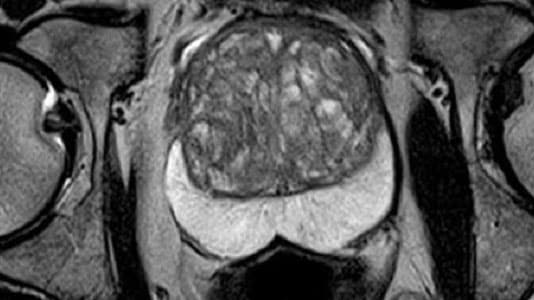Detecting prostate cancer
Dr Georgina Cosma's work includes the design of a machine learning model for the detection and presence of prostate cancer using a simple blood test.

Prostate cancer mainly affects men over 50 and risk increases with age. In the UK, 1 in 8 men will get prostate cancer at some point in their lives. The PSA blood test is used primarily to screen for prostate cancer and measures the prostate specific antigen (PSA) in the blood. Up to 15% of men with prostate cancer have normal PSA levels, therefore many cases may be missed via the PSA test.
Because PSA tests are inaccurate, PSA-based screening for prostate cancer is not supported by the NHS or promoted in any other country. To detect prostate cancer, patients must undertake biopsy and/or an MRI scan. Because the prostate tissue is in hard to reach areas, biopsy results are often incorrect and the cancer may not be detected.
MRI scans are complementary tests and cannot currently be used as the only approach for diagnosing prostate cancer, because around 25% of positive MRIs and 20% of negative MRIs are incorrect. New interventions are needed for detecting prostate cancer.
Our immune system (white blood cells) protects us against the development of cancer. Presence and stage of prostate cancer are detected in white blood cells. Dr Georgina Cosma's study identified immune cell biomarkers which were input into a computational tool to identify the presence and stage of prostate cancer in men with low PSA levels and without symptoms. Such predictions will aid clinicians decide whether to refer patients to biopsy.
This research has led to the development of a simple blood test and prediction tools which can detect presence and stage of prostate cancer. The prediction tools were built using machine learning models which learn from past data to make predictions on new previously unseen patient data. These models were built using a set of biomarkers, which were discovered using combinatorial feature selection methods.
Once validated, the prediction tools will be able to detect presence and stage of prostate cancer with higher accuracy than current approaches, reducing prostate biopsies by approximately 70%.
Dr Georgina Cosma is a Senior Lecturer in Data Science, Artificial Intelligence, Machine Learning and Predictive Modelling. As well as the machine learning model for detecting prostate cancer, her work includes a solution for analysing large sets of image data for detecting and evaluating defects in wind turbine blades and other surfaces with Deep Learning.
